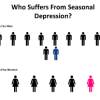- Empty cart.
- Continue Shopping
How Emotional Eating Affects Men’s Well-being

Emotional eating is a common behavior in which individuals use food to cope with their emotions, such as stress, sadness, anxiety, or boredom. While emotional eating affects both men and women, its impact on men’s well-being is often overlooked or underestimated.
1. Weight Gain and Obesity
- Excessive Caloric Intake: Emotional eating often leads to overconsumption of high-calorie, comfort foods, which can contribute to weight gain and obesity.
- Visceral Fat: Emotional eating can lead to the accumulation of visceral fat, which is associated with an increased risk of cardiovascular disease and other health issues.
2. Physical Health Consequences
- Chronic Health Conditions: Obesity resulting from emotional eating is linked to an increased risk of chronic health conditions, including diabetes, hypertension, and heart disease.
- Sleep Disruptions: Poor eating habits can disrupt sleep patterns, contributing to fatigue and decreased overall well-being.
3. Mental Health Impacts
- Cyclic Behavior: Emotional eating can create a cycle where negative emotions trigger overeating, followed by guilt or shame, which may lead to further emotional eating.
- Increased Stress: Emotional eating may temporarily alleviate stress but can lead to increased stress in the long run due to weight gain and health concerns.
4. Low Self-esteem
- Negative Body Image: Weight gain resulting from emotional eating can negatively impact body image, leading to lower self-esteem and self-confidence.
5. Social and Relationship Effects
- Social Isolation: Emotional eating can lead to social withdrawal and isolation, as individuals may choose to eat alone to hide their behavior.
- Impact on Relationships: Emotional eating can strain relationships, as partners and loved ones may become concerned or frustrated by the behavior.
6. Coping Mechanism
- Unhealthy Coping: Emotional eating can become the primary way men cope with difficult emotions, preventing them from developing healthier emotional coping strategies.
7. Financial Impact
- Excessive Spending: Emotional eating can lead to excessive spending on comfort foods and takeout, which can strain finances.
8. Reduced Physical Activity
- Sedentary Lifestyle: Emotional eating may be accompanied by a sedentary lifestyle, as individuals may be less motivated to engage in physical activity due to weight gain and low energy levels.
9. Nutritional Deficiencies
- Poor Diet Quality: Emotional eating often involves consuming foods high in sugar, fat, and processed carbohydrates, which can lead to nutritional deficiencies and other health issues.
Managing Emotional Eating
Recognizing and managing emotional eating is crucial for men’s well-being. Here are some strategies to help address emotional eating:
- Identify Triggers: Recognize the emotional triggers that lead to eating. Keeping a journal can help identify patterns and emotions associated with emotional eating.
- Seek Support: Share your struggles with trusted friends, family members, or a mental health professional who can provide support and guidance.
- Learn Healthy Coping Mechanisms: Replace emotional eating with healthier coping strategies, such as exercise, meditation, deep breathing, or engaging in hobbies.
- Mindful Eating: Practice mindful eating by paying attention to the taste, texture, and satisfaction of food rather than eating out of emotion.
- Healthy Food Choices: Stock your kitchen with nutritious, satisfying foods to reduce the availability of comfort foods.
- Stress Management: Implement stress-reduction techniques like mindfulness meditation, yoga, or progressive muscle relaxation.
- Professional Help: If emotional eating persists and significantly impacts your well-being, consider seeking help from a therapist or counselor who specializes in eating disorders or emotional eating.
In Conclusion, Emotional eating is a behavior that can have a significant impact on men’s physical and mental well-being. It’s essential for men to recognize the signs of emotional eating, understand its consequences, and seek support and strategies to manage this behavior. By addressing emotional eating and developing healthier coping mechanisms, men can improve their overall well-being and lead healthier, happier lives.








